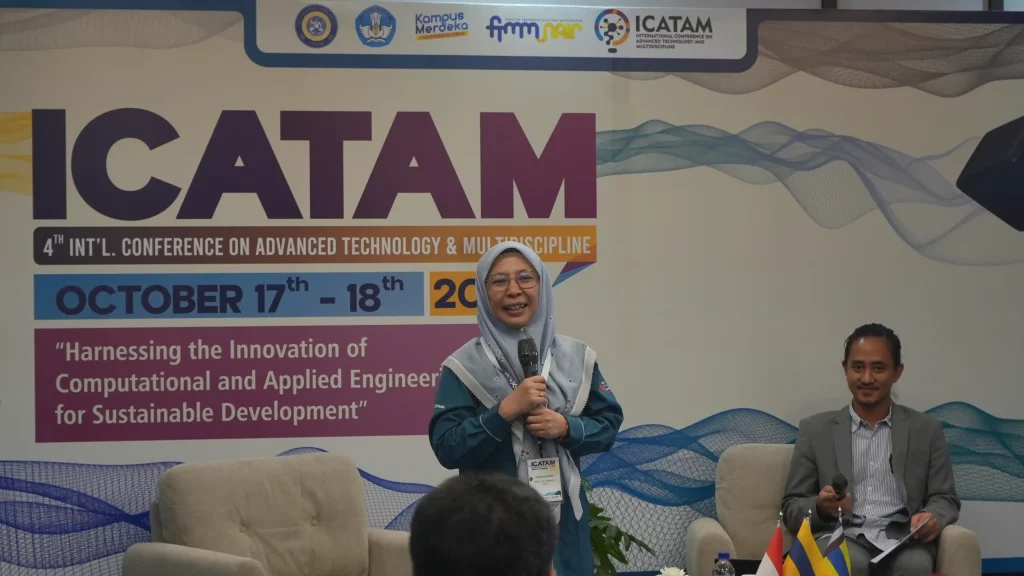UNAIR NEWS – As the industrial revolution accelerates, technology plays a crucial role in delivering innovative and sustainable solutions to global challenges. In support of these advancements, Universitas Airlangga’s (UNAIR) Faculty of Advanced Technology and Multidiscipline (FTMM) hosted the International Conference of Advanced Technology and Multidiscipline (ICATAM).
The conference, held in a hybrid format from Thursday to Friday (October 17-18, 2024), took place in the 10th-floor conference room of the Nano Building at UNAIR’s MERR-C Campus. This year’s ICATAM 2024 theme, “Harnessing the Innovation of Computational and Applied Engineering for Sustainable Development,” attracted researchers, academics, and professionals from around the world.
One of the keynote speakers was Prof. Ir. Dr. Norhana Arsad from the Department of Electrical, Electronic, and Systems Engineering at Universiti Kebangsaan Malaysia.
Smart Engineering
Prof. Arsad’s presentation focused on smart engineering in the digital age. She highlighted the advancements in photonics for data transmission and processing, underscoring its applications in fields such as nanotechnology, health monitoring, and communications.
“Photonics is a technology that harnesses light (photons) to generate, encode, transmit, and detect information through optical waves. This technology offers faster data transmission and lower energy consumption compared to conventional methods,” explained Prof. Arsad.
She also discussed Li-Fi (light fidelity), an emerging wireless communication technology that uses light and offers a more secure and efficient alternative to Wi-Fi.
“Li-Fi has several advantages over Wi-Fi, including data transmission speeds of up to 10 Gbps. Additionally, it provides enhanced security and is especially useful in high-data-density areas, effectively addressing radio interference challenges,” she said.
Digital engineering transformation
Digital engineering transformation is becoming a key focus in the technological developments of the Industry 4.0 era. Prof. Arsad explained that digital engineering integrates digital technologies to design, develop, and manage complex systems and products.
“Digital engineering transformation plays a vital role in addressing the challenges of the fourth industrial revolution (4IR). One of its key benefits is improving efficiency in product development. Moreover, digital engineering enhances accuracy in design and manufacturing, not only accelerating the process but also ensuring higher quality products,” she concluded.
Author: Raissyah Fatika
Editor: Yulia Rohmawati









